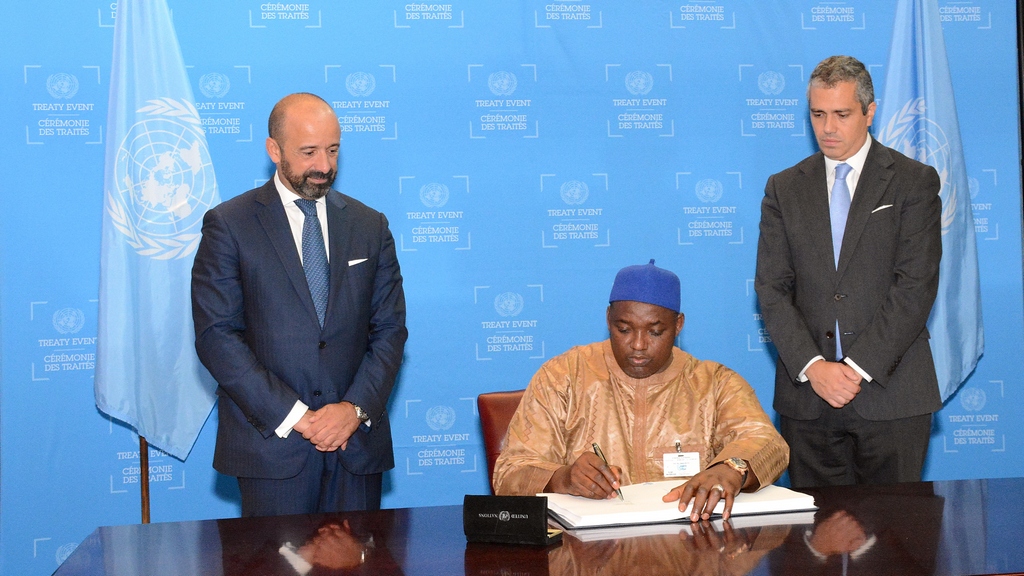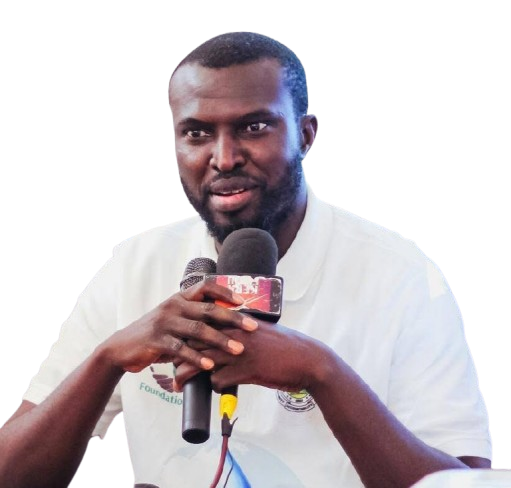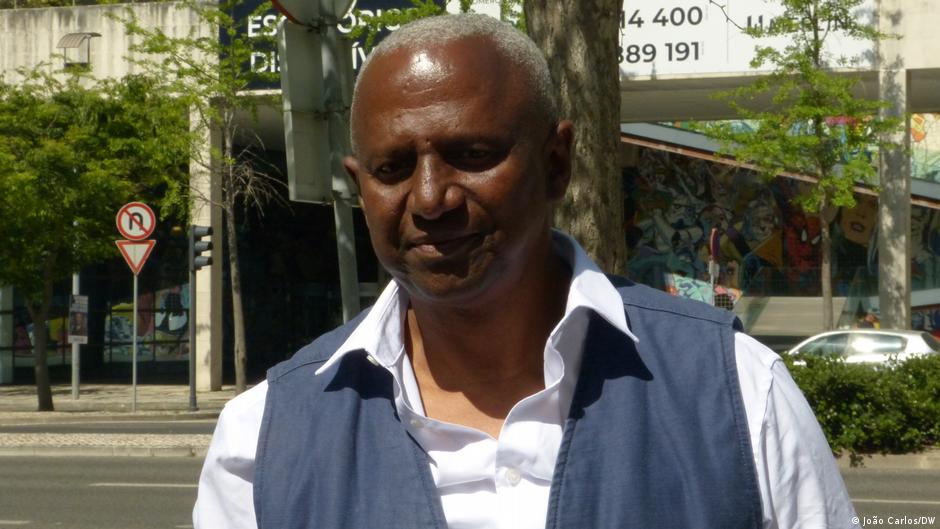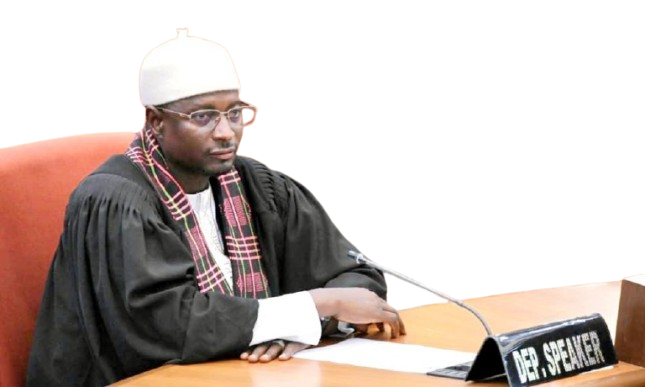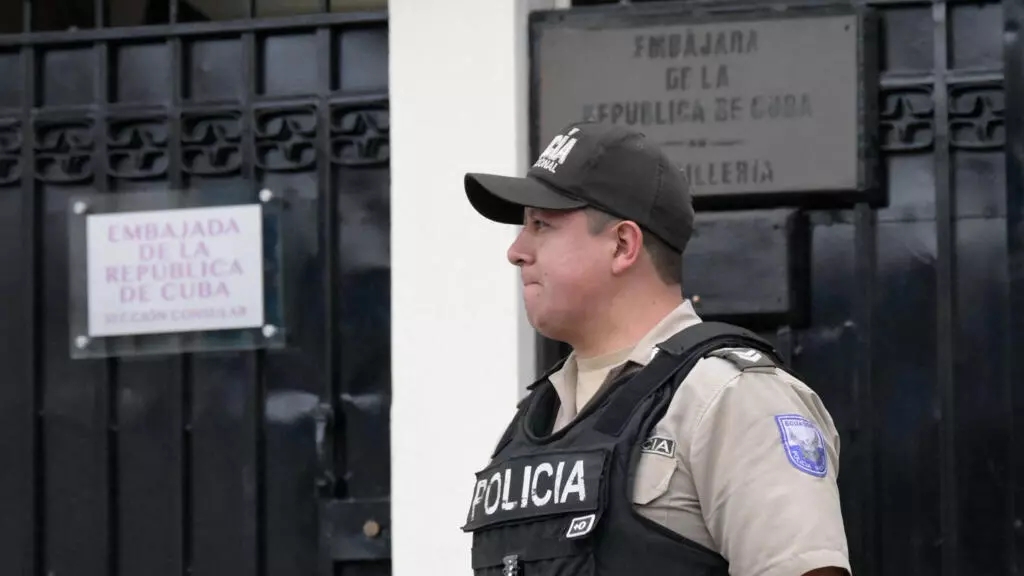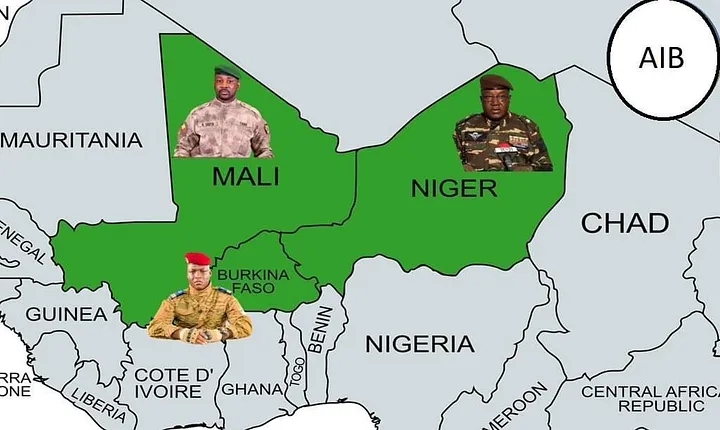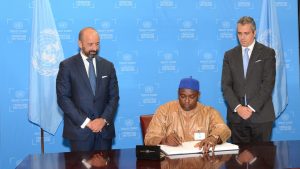Gambiaj.com – (NIAMEY, Niger) – The military-led governments of Mali, Burkina Faso, and Niger announced on Saturday that their territories would become a visa-free zone for nationals of the Economic Community of West African States (ECOWAS). This declaration comes ahead of an ECOWAS summit in Abuja, Nigeria, aimed at discussing the reintegration of the three nations into the regional bloc.
The three countries, which form the Alliance of Sahel States (AES), have been governed by juntas critical of France’s influence. In January, the AES declared its intention to withdraw from ECOWAS, which currently consists of 15 member states. The alliance accuses ECOWAS of being exploited by the former colonial power.
“The Confederation of Sahel States is a visa-free space for any national of the member states of ECOWAS,” Malian Foreign Minister Abdoulaye Diop announced in a televised statement on Saturday. The press release, signed by Malian leader General Assimi Goïta, who presides over the AES, guarantees ECOWAS nationals the right to “enter, move around, reside, establish themselves, and leave” the AES countries, subject to compliance with national laws.
Additionally, vehicles for private, commercial, and passenger transport registered in ECOWAS countries are permitted entry into the AES area in accordance with existing regulations. However, the three nations maintain restrictions on “inadmissible immigrants,” without clarifying the criteria for inadmissibility.
This announcement follows a Friday statement by AES ministers in Niamey, reiterating their “irreversible” decision to withdraw from ECOWAS. The withdrawal process, as outlined in ECOWAS regulations, requires a one-year waiting period, making the exit official by January 2025.
Despite the AES’s firm stance, ECOWAS has continued its efforts to prevent a formal breakup. Senegalese President Bassirou Diomaye Faye, appointed as mediator in July, recently reported progress in negotiations. He is anticipated to give a thorough evaluation of his mission on Sunday in Abuja. However, no AES delegation is expected at Sunday’s ECOWAS summit in Abuja.
The rift between ECOWAS and the AES stems from the July 2023 coup in Niger, the sixth coup in the region within three years. ECOWAS responded with threats of military intervention and severe economic sanctions against Niger, though these sanctions have since been lifted.
The AES bloc represents a vast, landlocked region with a combined population of 72 million. Its members argue that ECOWAS has failed to adequately support them against jihadist violence, which has claimed tens of thousands of lives over the past decade.
To strengthen their alliance, AES members have implemented several measures, including a memorandum to abolish roaming charges for telephone communications between their countries. They also plan to harmonize travel and identity documents to facilitate the free movement of people and goods.
The currency question remains unresolved. The AES countries are part of the West African Economic and Monetary Union (WAEMU) and currently use the CFA franc. However, discussions on exiting the monetary union and adopting a new currency in the medium term are underway.
The AES has also pivoted toward new international partnerships, particularly with Russia, which they regard as more “sincere” than Western allies. This realignment further underscores the bloc’s ambition to chart a more independent path amid shifting regional dynamics.



